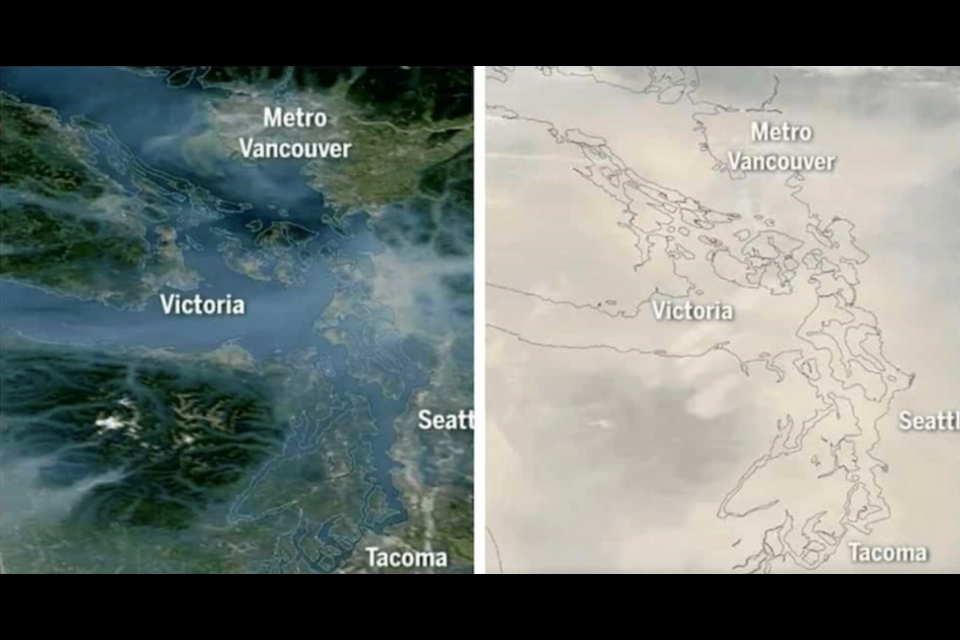After over a week of choking fine particulate matter blanketing the Tri-Cities, air quality appears to be improving with a monitoring station in Port Moody reporting a “low-risk” to human health.
Fine particulate matter, also known as PM2.5, had triggered severals days of air quality warnings across the Metro Vancouver area as the region jockeyed for the unenviable title of worst air quality in the world.
But by late Friday night, concentrations of fine particulate matter — blown from the ashes of scorched forests, fur, feather and homes as wildfires burn across Northern California, Oregon and Washington — began to abate.
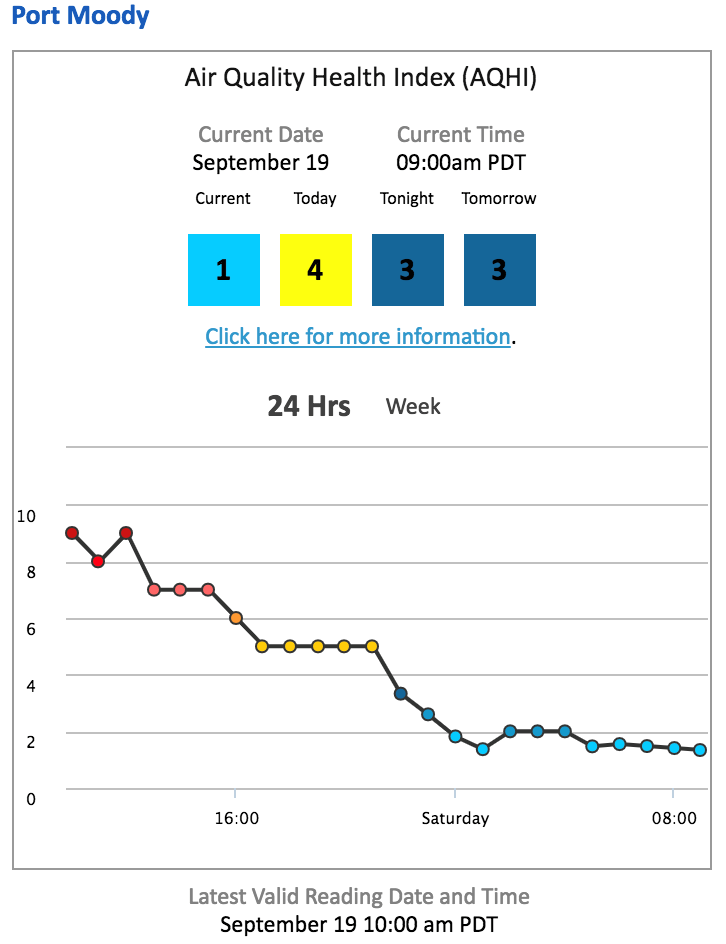
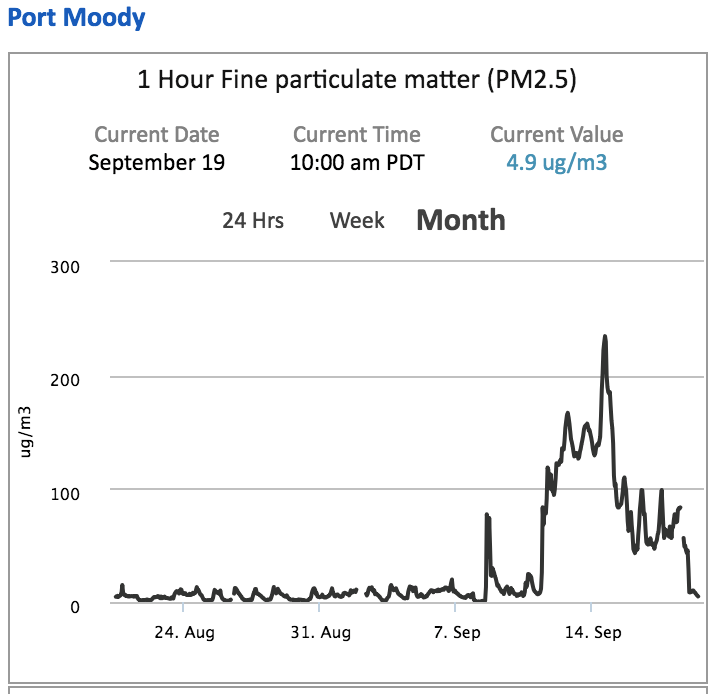
According to a 10-point health index scale, air quality triggered a 4 or “medium risk” for much or Friday at Metro Vancouver’s Port Moody station. But at 9 p.m. the station recorded a massive improvement in air quality, dropping to under 10 PM2.5 from a high of nearly 190 on Monday, Sept. 14.
By Saturday morning, the air quality health index had dropped to a 1 or “low risk” to health.
Cumulative fine particulate matter concentrations over the last 24-hour period now sit at 25 micrograms per square metre, the threshold for what’s considered safe.
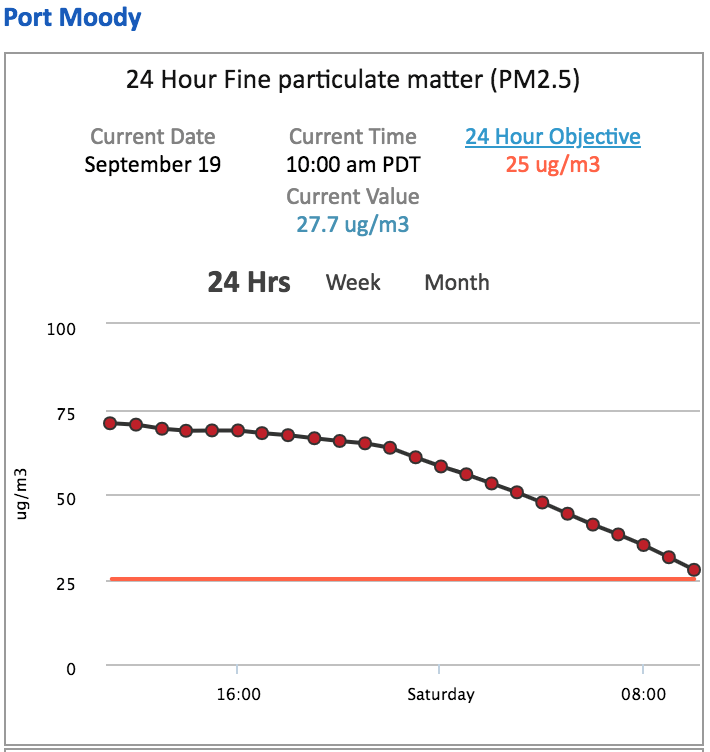
Despite the improvement, Environment Canada’s special air quality statement for the Tri-Cities — as well as the rest of Metro Vancouver and the Fraser Valley Regional District — continued for a twelfth consecutive day as of 11 a.m. Saturday.
“Wildfire smoke from fires in Washington, Oregon and California continues to persist in the region,” wrote the national weather agency in its statement.
“Air quality has continued to improve since yesterday but ground-level smoke still remains. A weather system is expected to bring further improvements through the weekend.”
For those with underlying health conditions at higher risk to poor air quality, here's how you can protect yourself.
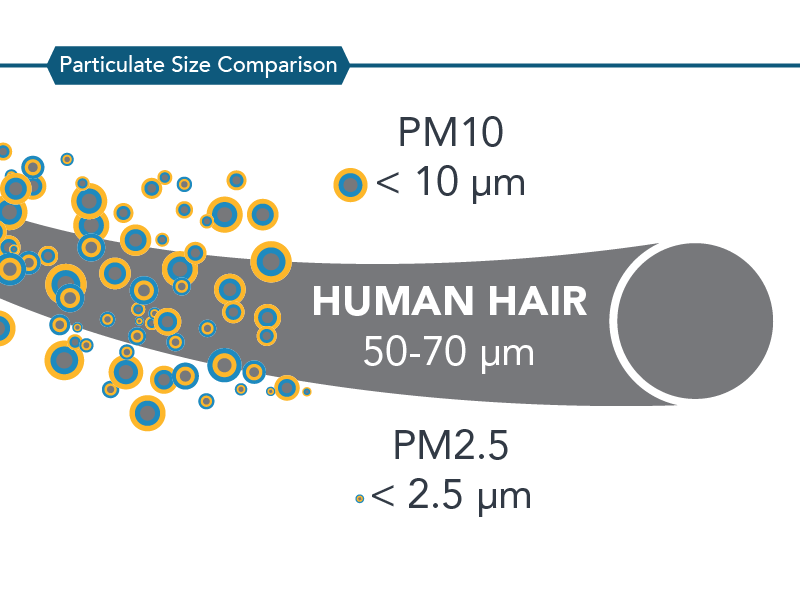
WHAT'S NEXT?
Light rain fell on some parts of Coquitlam Saturday morning, and that’s expected to taper to showers by the afternoon, according to the Weather Network.
Clouds and showers are predicted to dominate Sunday in Coquitlam, while cloudy weather with sunny breaks is expected Monday.
And while sun and a chance of showers is forecast for Tuesday, Sept. 22, the weather is expected to take a turn Wednesday, with heavy rain rounding out the week.
Wednesday’s moist weather is expected to prevail south of the border as firefighting crews — including some from B.C. — look to suppress the historical fires experts say are the deadly result of unprecedented hot and windy weather and years of unnaturally suppressing wildfires as people build deeper into wilderness.
“It’s reckless to ignore that climate change component,” said Meg Krawchuk, a former SFU researcher now in Corvallis, Ore., who studies the geography of wildfire to understand its ‘recipes’ from one place to the next.. “That underlying drumbeat, which is a directional change in climate towards aridity and dryness is something that touches all of these fires.”
She added: “It’s going into that pace of not ‘what if’ but ‘when’ that next round will come to your back door.”
